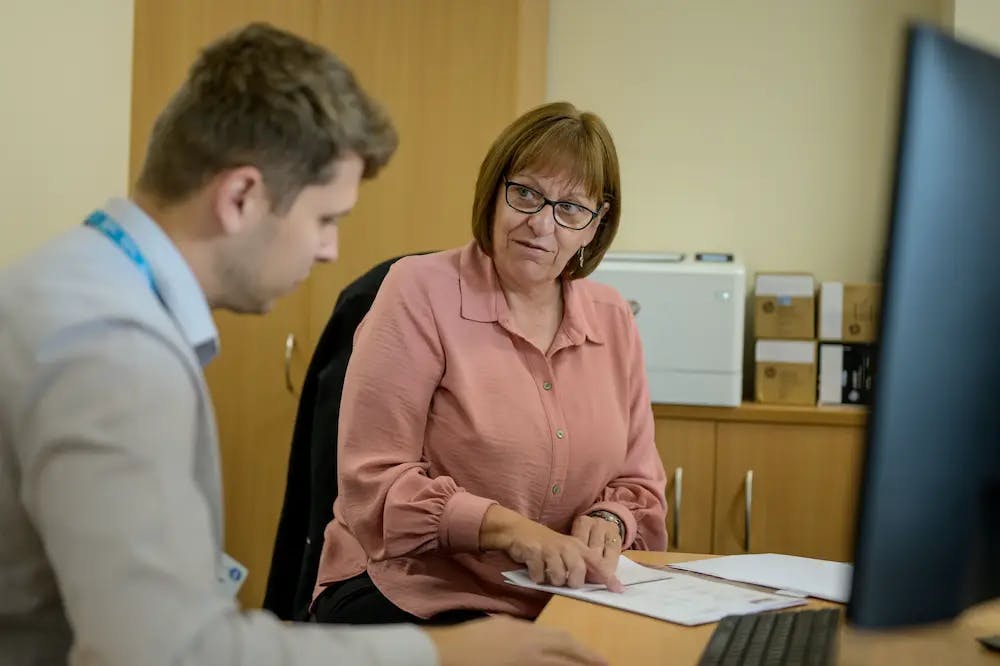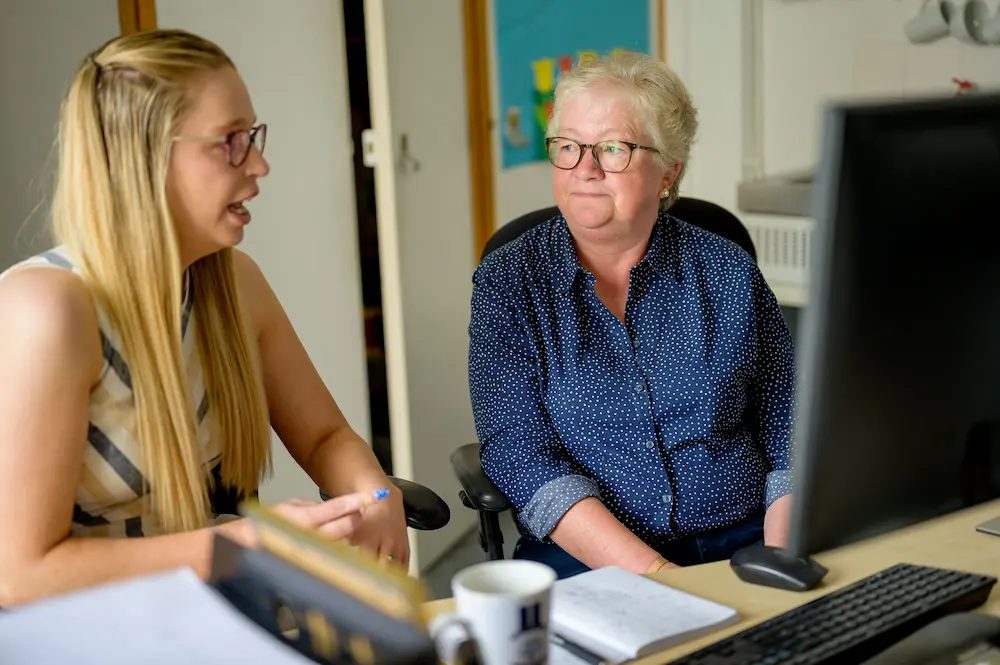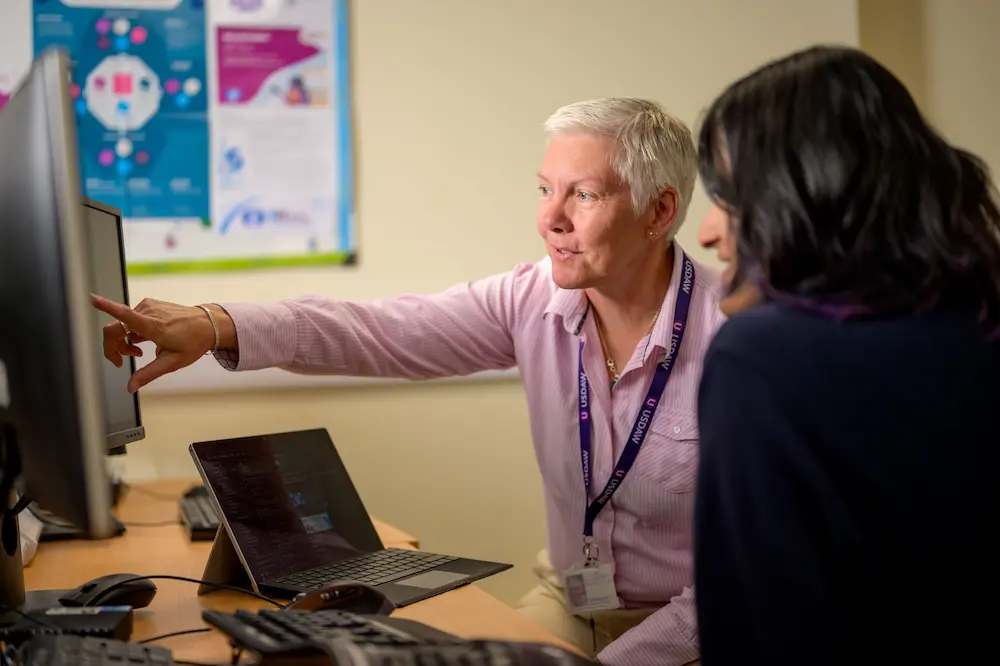Getting a Carer’s Assessment: How They Work

Estimated Reading Time: 8 minutes
The emotional nature of caring means many people don’t like asking for help, but receiving some much-needed support can make a world of difference.
If you’re a carer for a family member or someone else, a carer’s assessment exists to see what help can make your life easier. This assessment is for adult carers of other adults (over 18 years old) who are disabled, ill or elderly.
Below, we’ve looked at what this type of assessment is, whether you’re eligible, how they work and the support you can expect to receive.
Kickstart your care search
Discover the best care homes in your area through Lottie.
In this article:
- What is a carer’s assessment?
- How to tell if you’re a carer
- Who can have a carer’s assessment?
- How to get a carer’s assessment
- What happens in a carer’s assessment
- If you qualify for council support
- If you don’t qualify for council support
- How to complain about a carer’s assessment
What Is A Carer’s Assessment?
A carer’s assessment is for carers over 18 years old who are looking after another adult who is disabled, ill or elderly. This is a chance to record the impact caring has on your life and what support or services you need.
Along with assessing the needs of the person you care for, your local council’s social service department will likely also give you a carer’s assessment. This assessment figures out if you need any help in your caring role.
Though a carer’s assessment often takes place alongside a care needs assessment, you can get one of these regardless of whether the person you care for is having their needs assessed or not.
A carer’s assessment may recommend things like:
- Someone temporarily taking over caring so you can take a break (such as the care provided in a respite care home)
- Assistance in your caregiving role
- Assistance with day-to-day tasks at home
- Information surrounding local support groups
- Equipment to help in your caring role
- Help with taxi fares (if you don’t drive)
How To Tell If You’re A Carer
You’re classed as a carer if you regularly look after someone because they’re ill, disabled or an older adult. Carers help with:
- Getting dressed and undressed, washing and administering medication
- Transport to and from appointments
- Household tasks
- Paying bills and dealing with financial admin
- Emotional support
Who Can Have A Carer’s Assessment?
Any carer who appears to require support and is aged over 18 can be assessed by their local council through a carer’s assessment.
You’ll be entitled to this assessment, regardless of the amount or what type of care you provide, your financial means or how much support you require.
You don’t necessarily have to be living with the person you’re caring for or be caring full-time to have this assessment either. You could be juggling work and care, with this having a sizeable impact on your life.
You can still have an assessment if the person you’re caring for hasn’t had a care needs assessment, or if the local council has deemed them as ineligible for support. If you and the person you’re caring for agree, a combined assessment of both of your needs can be undertaken at the same time.
If you’re splitting caring responsibilities with somebody else (or more than one other person), you can each have an assessment.

How To Get A Carer’s Assessment
You should be offered a carer’s assessment by the local council adult social services department of the person you’re caring for.
If you haven’t been offered one, contact adult social services at your local council and make a request.
You can either call, do this online or write to them.
If you wish, you can also ask for an assessment before beginning a caring role.
If you’re a parent or carer of a child, contact the ‘children with disabilities department’ of your local council.
What Happens In A Carer’s Assessment
During a carer’s assessment, someone from the council (or an organisation the council works with) will ask how you’re coping with caring and how it affects your life on a daily basis.
You’ll be told of any services available to you, including carer benefits such as carer’s allowance.
To be able to receive services and/or direct payments from the local council, you’ll need to meet the national eligibility criteria and have what’s known as ‘eligible needs’.
Generally, you’ll meet the eligibility criteria if there is (or is likely to be) a significant impact on your wellbeing as a result of your caring for somebody else.
There are three questions the local council will consider when making their decision on your eligibility:
- Are your needs the result of you providing care?
- Does your caring role affect you?
- Is there, or is there likely to be, a significant impact on your wellbeing?
A carer’s assessment is normally face-to-face, though some councils can do it online or over the phone. Assessments will usually last an hour or more.
How to prepare
To be ready for a carer’s assessment, you’ll need:
- Your NHS number (if you have one)
- Your GP’s name, address and phone number
- Contact details of anyone coming to the assessment with you
- The name, address, date of birth and NHS number of the person you care for (again, if you have it)
- Your email address (other contact details may be needed as well)
It’s also worth thinking about the following questions and whether being a carer is impacting these things in your life:
- Is your caregiving role affecting your physical or mental wellbeing?
- Is your caregiving role affecting your ability to spend time with other loved ones?
- Are you eating properly?
- Are you sleeping well?
- Are you finding it difficult to juggle work and caring?
- Can you socialise and enjoy hobbies in the same way you used to?
Getting the results
The local council will get in touch to tell you the results of the carer’s assessment.
If you qualify for council assistance, they’ll write you a care plan and support plan which outlines how they can help. This plan will include who will provide each particular bit of support.

If You Qualify For Council Support
If the local council decides you do have eligible needs, they then have a legal obligation to meet these needs (assuming you want them) and must draw up a support plan explaining how these needs will be met.
The support plan must include:
- Details of the needs identified
- Which needs meet the eligibility criteria
- Which needs the local council is going to meet, and how
- The outcomes you’d like to achieve
- Information about the personal budget available (the amount of money the local council has worked out it’ll cost to arrange the necessary support for you)
- Information about direct payments
- Any other information and advice to further support you in your role as a carer
You and the council may agree that the best way to help you as a carer is by:
- Directly providing services to you
- Directly providing services to the person you’re caring for
- Arranging services through a different organisation
- A combination of all of these
The local council can either provide services themselves or arrange services through a different organisation. Another common route is for you or the person you’re looking after to request direct payments. These are payments that enable you to buy services to meet your eligible needs.
The local council may or may not charge you for carers support (most don’t). If they do, they must carry out a financial assessment to work out if you need to contribute and if so, how much. If the help you’re offered is free, no financial assessment is required.
If You Don’t Qualify For Council Support
You must be given a written explanation if the local council decides you don’t have eligible needs.
You must also be given advice and information about what could be done to prevent or reduce your needs, either now or in the future. This advice and information will be tailored to your specific circumstances.
How To Complain About A Carer’s Assessment
If you don’t agree with the results of your carer’s assessment or the way it was carried out, you can complain.
Start this process by contacting your local council. They should have a formal complaints procedure on their website. You should also have been told how to complain during your assessment.
If you feel as though the council doesn’t properly handle your complaint, you can take it to the local government and social care ombudsman.



